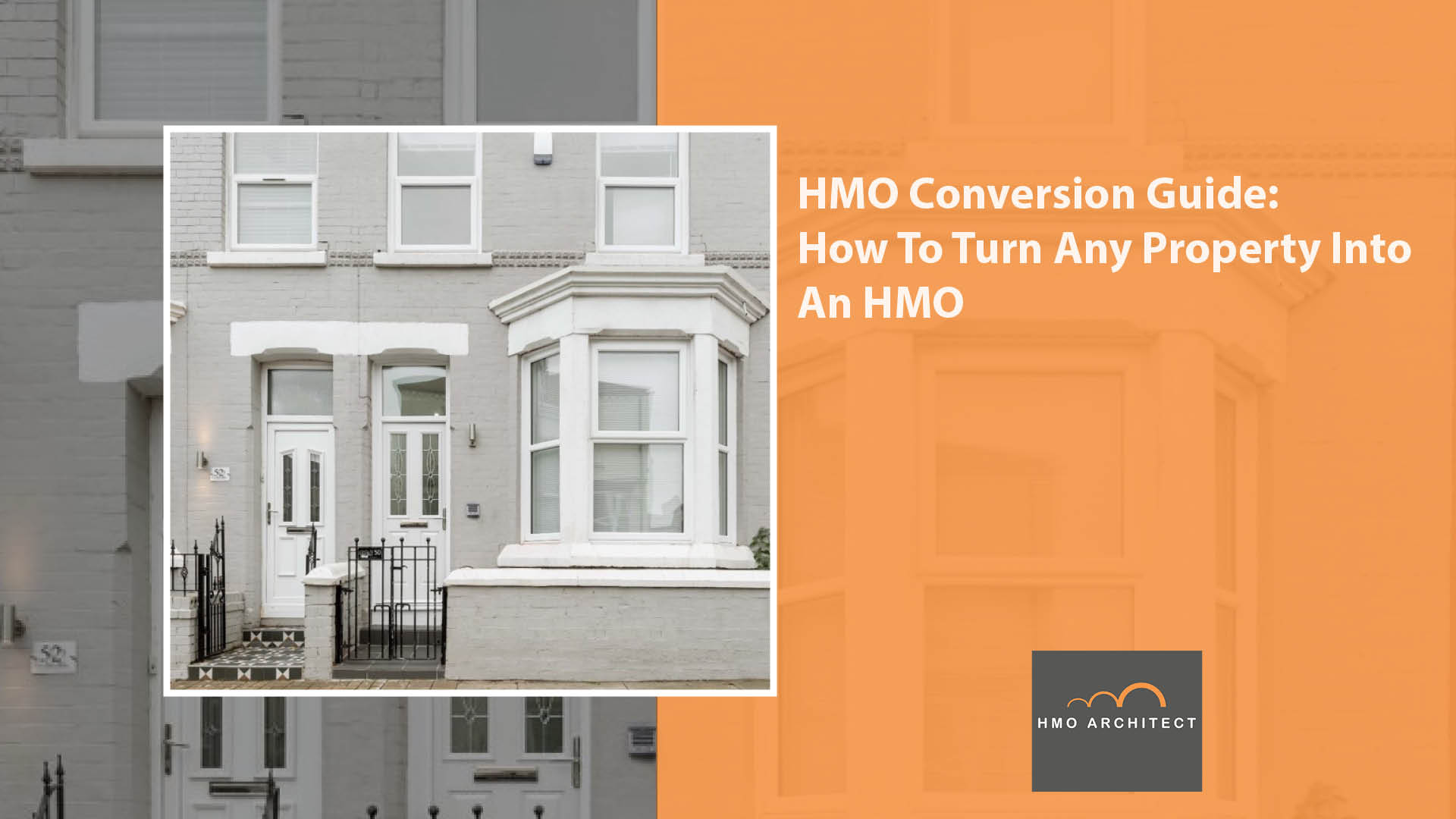
The thing about HMOs is that they bring affordable housing and community living to the table, but they’re a two-edged kind of deal. Shared accommodation can significantly sway tenants’ day-to-day quality of life. It’s not much different for landlords, as HMOs offer great potential for higher returns but also bring heightened risks and considerations. So, how do you go about HMOs to ensure your interests are protected and your obligations met? Good old rules, well-defined HMO house rules for tenants and landlords. How many? Well, that depends on factors like regulations, size, location, occupants, needs —you get the idea.
By no means exhaustive, we have compiled our top tips to help tenants and landlords reach an efficient HMO balance. Let’s dive in.
Rules to meet your responsibilities for safety
Entering the HMO world unprepared can easily tip the scales for everyone, leading to draining and costly conflicts. But, if done correctly, you can tilt the balance in favour of stability and profits. To begin with, let’s check your responsibilities in the context of regulations and standards.
Tip 1: Familiarise yourself with HMO regulations and safety standards.
Understanding and adhering to regulatory requirements concerning fire safety, property maintenance, and health and safety measures ensures your well-being and assists in fulfilling your responsibilities as a tenant. Compliance with regulations and safety standards is essential for all parties involved and is vital for avoiding potential liabilities and meeting legal requirements.
It’s also essential for landlords to ensure that tenants are well-informed and have access to relevant information at all times. This approach includes communicating with them about their duties regarding fire safety, property maintenance standards, and their responsibilities for maintaining cleanliness and tidiness in communal areas.
Understanding Fire Safety Regulations:
As a tenant, you must understand the fire safety requirements applicable to HMO properties. These regulations often mandate landlords to install and maintain fire detection and alarm systems, provide fire extinguishers, and ensure safe escape routes. You want to ensure you’re well prepared, able to identify the safety measures in place and understand how to respond appropriately in a fire emergency.
Adhering to Property Maintenance Standards:
HMO regulations establish property maintenance standards for safety, comfort, and habitability. Tenants must be clear about their responsibilities regarding property maintenance, such as promptly reporting issues to the landlord and cooperating with scheduled inspections or repairs.
Tip 2: Be aware of your obligations regarding property maintenance.
In HMOs, landlords are responsible for major repairs and maintenance, but tenants are generally expected to keep their living spaces clean and well-maintained. Adhering to maintenance and cleanliness standards helps preserve the property’s condition and contributes to a safe and comfortable living environment for all residents.
Tenant Responsibilities for Communal Areas:
In HMO properties, tenants are responsible for maintaining the cleanliness of communal areas; this includes shared kitchens, bathrooms, hallways, and other spaces. Besides fulfilling obligations with your landlord and your tenancy agreement, adhering to these responsibilities fosters a sense of community. It ensures amenities are in good condition for yourself and your fellow tenants.
Tip 3: Report maintenance issues promptly.
As a tenant, it’s within your responsibilities to notify the landlord or property manager about any maintenance issues or repairs needed in the property. Timely reporting helps prevent further damage and ensures that the necessary repairs are completed promptly, maintaining the property’s habitability and safety standards.
Rules on conduct and shared accommodation
HMOs involve shared living and shared responsibilities, meaning everyone plays a part in looking after common areas and the environment within the property. While keeping the property clean and well-maintained promotes cooperation among tenants and timely reporting maintenance issues helps look after the property, preserving a healthy environment involves proactively taking responsibility for personal behaviour.
Tip 4: Ensure Proper Communication and Implementation of Rules
Efficient and open communication channels are essential for cultivating a positive landlord-tenant relationship and promptly addressing any issues or concerns. By fostering and following transparent communication, you can effectively handle maintenance requests, clarify house rules, report concerns, and ensure all parties recognise their rights and obligations.
Regularly Communicating Expectations:
It’s essential for landlords to consistently communicate house rules to tenants at the start of the tenancy via the agreement and periodically as necessary during the rental period. Clear communication helps ensure tenants are fully informed about their responsibilities and comprehend the repercussions of failing to adhere to the rules, such as behaviour that may end the tenancy early.
Addressing Issues Promptly:
Taking prompt action to resolve any issues or rule violations is crucial for preserving a harmonious living environment within the HMO. Landlords should proactively address any concerns tenants raise and enforce rules consistently to deter conflicts and promote compliance.
Tip 5: Follow guidelines for noise levels, guests, and shared responsibilities
Respecting communal areas and following agreed-upon rules is essential for promoting harmonious living and reducing tenant conflicts. Cooperation and consideration from all occupants are necessary to maintain a positive living environment within the HMO.
Clear policies regarding noise levels are essential to mitigate disturbances and ensure tenants can enjoy order and peace in their living spaces. These policies are also crucial for preventing disputes with neighbours. Equally important is setting guidelines for guest visits, helping maintain security and privacy within the property.
Tip 6: Respect the privacy and rights of your [fellow] tenants.
When sharing the living space with others, privacy and personal spaces are measures for a healthy environment. An effective strategy involves practical and reasonable actions, such as refraining from entering someone’s room without permission, avoiding excessive noise, and being considerate of schedules and preferences. Respecting your fellow tenants’ rights contributes to a positive and respectful living environment for everyone in the HMO.
A well-known rule is that tenants have the right to quiet enjoyment of the property, which means they are entitled to use their rented space without interference from the landlord. However, while landlords must respect tenant’s privacy and refrain from entering the leased premises without proper notice, there are concessions in emergencies or other legally permissible circumstances.
The house rules must provide clear guidance on the various aspects of communal living. By establishing and following these guidelines, landlords and tenants can ensure that all involved know their role in maintaining a suitable living environment, ultimately preventing needless disputes.
Rules to meet contractual obligations
Tip 7: Know your duties on rent payments and your claims on tenancy deposits.
However obvious, let’s reinforce why it’s essential to fully understand the terms of your tenancy agreement regarding rent payments. This rule requires knowing the due date for rent payments, the accepted payment methods, any penalties for overdue payments, and any details that could impact your finances.
Similarly, it’s essential to identify the procedures for repaying your tenancy deposit at the end of your tenancy, which involves identifying any causes for deductions from your deposit and the timeframe for its return. Keeping up with your contractual obligations allows you to meet your financial obligations, protect your deposit, prevent issues or penalties and ensure a smooth ending to your tenancy.
Recourse in Disputes:
In disputes or issues with the landlord, tenants have recourse to seek resolution through legal means; this may include mediation, arbitration, or legal action through the courts, depending on the nature and severity of the dispute. As a tenant, knowing your legal entitlements can help you seek appropriate remedies when necessary.
Legal Protections against Unlawful Actions:
Tenants are protected against unlawful actions by landlords, such as illicit eviction, harassment, or retaliation for exercising their legal rights. Understanding these rights allows tenants to identify and challenge any illegal behaviour by landlords. If faced with such situations, tenants can seek legal remedies to address the issues and uphold their rights.
Tip 8: Know the procedures for terminating your tenancy.
Know the details and follow the proper procedures for terminating your contract, including providing written notice within a certain period and complying with any additional conditions outlined in the agreement. The notice period —the time that either the landlord or the tenant must give in advance before terminating the tenancy agreement— is usually specified in the tenancy agreement or governed by local rental laws and regulations.
Being aware of these requirements helps protect your rights and avoid potential disputes. It fosters a more cooperative relationship between tenant and landlord, ensuring a smooth transition out of the property.
Rules for practical understanding
Tip 9: Understand HMO Tenants’ Rights and Obligations
Understanding your lawful rights and responsibilities as a tenant is non-negotiable, along with any additional rules the landlord sets under the tenancy agreement —likely to be the standard Assured Shorthold Tenancy (AST). Thoroughly reviewing your contract and seeking clarification on any unclear terms is crucial. This approach lays the groundwork for fulfilling your contractual obligations, but it also will assist you in effectively managing any disputes or challenges that may arise during your tenancy.
A binding, well-crafted tenancy agreement formalises the tenant-landlord relationship and its conditions. But contrary to all best practices advised to manage an HMO, you could find instances where there is no formal agreement in place. However, this flight under the radar doesn’t leave tenants completely unprotected. So, what protection do you have if there isn’t an HMO tenancy agreement?
Tenant rights under common law tenancy.
Tenants in HMO properties are afforded certain rights under the legal framework governing rental accommodations, including the right to fair treatment, which prohibits, for instance, discrimination based on race, gender, religion, or disability.
So, common law tenancy establishes rights for tenants but also outlines crucial obligations extending to guidelines and rules for HMO landlords; this includes the right to a safe and habitable living environment, which means that landlords must ensure that the property meets crucial health and safety standards. Common law also protects against unlawful eviction, meaning that landlords cannot evict tenants without following proper legal procedures.
Download Your Free HMO House Rules Template
A well-run HMO starts with clear expectations. Our editable house rules template helps set the standard for respectful shared living, reducing disputes, minimising tenant turnover, and making management hassle-free. Simply download, customise with your property details, and print to display in communal areas.
DOWNLOAD THE TEMPLATE
Stay informed and seek assistance when needed.
Here’s one golden HMO rule for you, whether you’re a tenant or landlord, get yourself adequately informed about HMO tenancy agreements, for instance, what can and can’t be included, common misconceptions, etc., and about HMOs in general, from licensing requirements to fire regulations and emergency efficiency requirements, the more you know about HMOs, the easier to navigate this complex landscape.
Don’t hesitate to seek assistance if you have questions or concerns about tenancy rights, responsibilities, or legal obligations; your resources may include consulting with housing authorities, seeking legal advice, or contacting tenant advocacy organisations for support and guidance.
At HMO Architect, we’re all about successful property ventures. Our crew knows the ins and outs of HMOs, from design and planning to compliance and management. So, whether you’re a seasoned landlord or about to start your first HMO investment, we’ve got your back. Check out what we offer or hit us up for a free discovery call. Your dream HMO is just a call away!
Giovanni is a highly accomplished architect hailing from Siena, Italy. With an impressive career spanning multiple countries, he has gained extensive experience as a Lead Architect at Foster + Partners, where he worked on a number of iconic Apple stores, including the prestigious Champs-Élysées flagship Apple store in Paris. As the co-founder and principal architect of WindsorPatania Architects, Giovanni has leveraged his extensive experience to spearhead a range of innovative projects.




